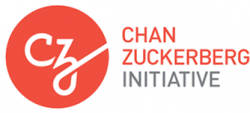 Meta is a noncommercial tool that helps scientists understand global research developments and trends. Meta uses artificial intelligence (AI) to read the world’s scholarly papers, understand what is in them, and deliver their insights to researchers in real time. Meta was recently acquired by the Chan Zuckerberg Initiative to help accelerate the pace of scientific discovery. Here’s what Greg Tannenbaum of Meta has to say about the engine.
Meta is a noncommercial tool that helps scientists understand global research developments and trends. Meta uses artificial intelligence (AI) to read the world’s scholarly papers, understand what is in them, and deliver their insights to researchers in real time. Meta was recently acquired by the Chan Zuckerberg Initiative to help accelerate the pace of scientific discovery. Here’s what Greg Tannenbaum of Meta has to say about the engine.
“Every day, more than 4,000 scholarly papers with new research and discoveries are published in biomedicine alone, but most will not be read by scientists who can learn from them. Why? Because the tools that exist for scientists today aren’t designed to point them to the most relevant new information as it is published – information that could be critical to advancing their research. For example, many search tools provide results based on the specific keywords provided by scientists. However, those tools don’t flag and prioritize new papers as they are published, and they don’t always show potentially important findings from related fields. This makes it easy for important discoveries to go unnoticed, and can even slow down the pace of scientific progress.
Meta has developed an AI-driven discovery engine to accelerate the pace of scientific progress – helping researchers avoid conducting experiments that have already been done, learn about key papers that may otherwise go unnoticed, and encourage investment in emerging fields of research earlier. Underpinning the Meta discovery engine (which is available free to anyone in the world) is a knowledge graph that includes 30 million+ scholarly articles. Meta has indexing agreements with dozens of publishers to make their content discoverable, including BMJ, the American Medical Association, PNAS, Taylor & Francis, Oxford University Press, Annual Reviews, and eLife.
Publishers are working with Meta for several reasons. The first is that Meta is a noncommercial entity with the sole aim of improving efficiencies in research discovery. Second, the Meta discovery engine delivers readers back to their sites. Although we require access to your full-text in order to deeply mine connections between hundreds of classes of entities, we do not serve the full text in any capacity. Nor do we pass our users off to file-sharing services or allow them to post PDFs to the site. All traffic flows to you. Finally, Meta will be providing a number of free, AI-driven tools to our publisher partners. These tools provide insights and predictions pertaining to manuscripts, articles, journals, and individual entities in science. For example, later this year Meta will be providing a free API that allows publishers to generate a “bibliometric intelligence” report for any submitted manuscript, offering insights into the likely impact of this paper, reviewer suggestions, and a wealth of other information.
With Meta’s recent acquisition by the Chan Zuckerberg Initiative, we can continue to enhance our technologies, working toward a goal of a more efficient research ecosystem.“
If you would like to be part of the Meta initiative, there is no need to do anything at all. If for whatever reason you DO NOT WANT to be involved, please let your Account Manager know by the end of March 2017.